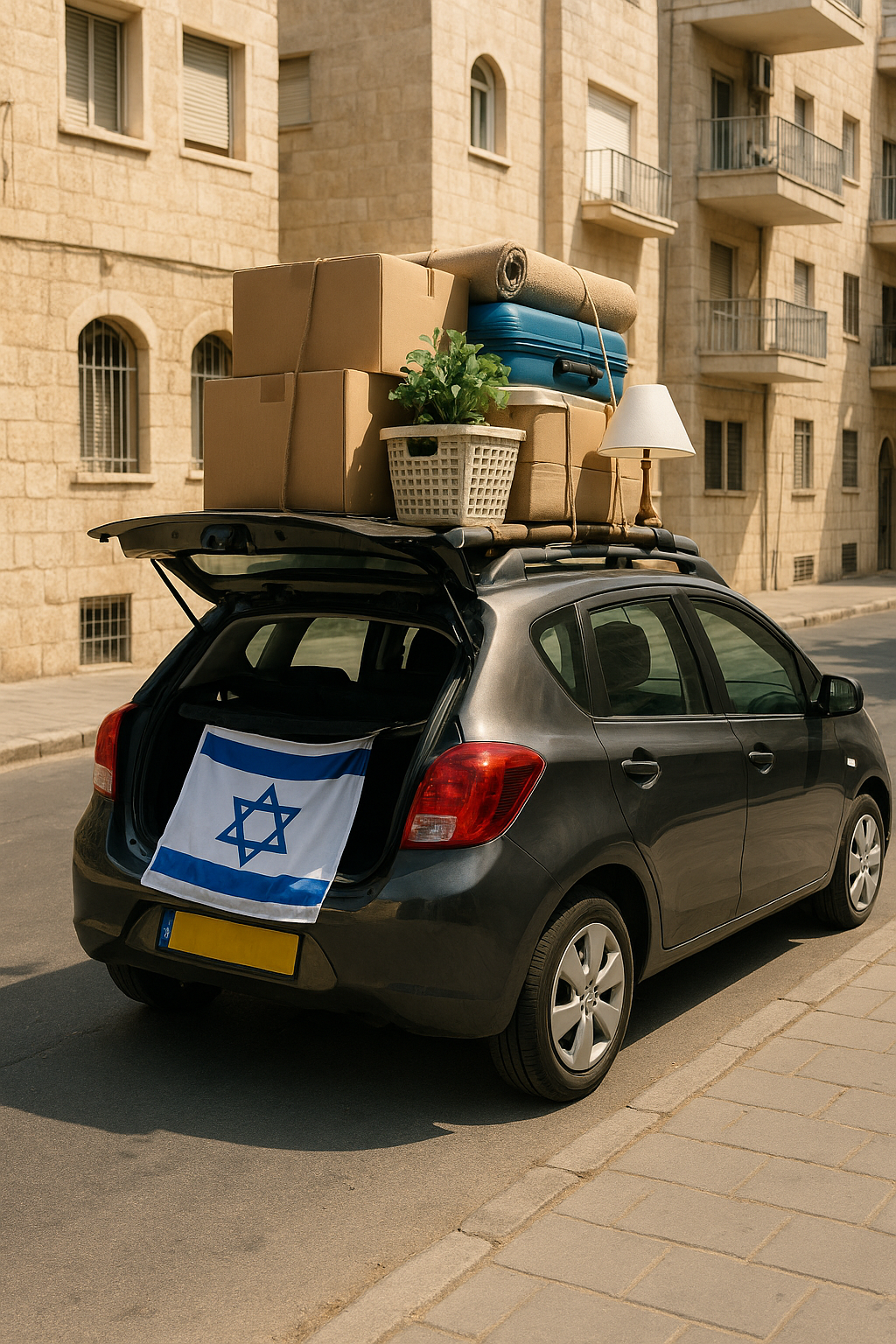How to Transport Belongings to Israel: Tips for Moving
Reading time: 5 minutes
- Thorough planning and inventory
- Choosing the right transportation method
- Proper packing of belongings
- Completing customs formalities
- Settling into the new place
Planning and organizing the move
Choosing the transportation method
Packing belongings and customs formalities
Planning and organizing the move
Moving to a new country is always an exciting but complex event that requires thorough preparation. One of the key issues for repatriates and expats is transporting personal belongings to Israel. Proper organization of this process helps avoid unnecessary costs, stress, and property damage. In Israel’s multicultural environment, where multiple languages are spoken, it is especially important that information is accessible to everyone. Our free classifieds service addresses this by automatically translating each listing into four main languages: Hebrew, English, Russian, and Arabic. This significantly expands the audience and increases the chances of quickly finding reliable helpers or purchasing necessary moving materials.
Choosing the transportation method
The choice between sea, air, and land transport depends on cargo volume, budget, and deadlines. Sea freight is the most economical option for large shipments, but it takes a long time. Air delivery, on the other hand, is fast but expensive and suitable for urgent or valuable cargo. For moves from neighboring countries, land transport can be considered. Regardless of the choice, be sure to insure the cargo. Transporting furniture and large items may require special vehicles, which can be found in the Auto section. Thanks to the automatic translation of your request, you can easily understand the terms of Israeli carriers and choose the best option.
Packing belongings and customs formalities
Sturdy and proper packing is key to preserving your belongings. Fragile items should be wrapped in bubble wrap and placed in boxes marked “Fragile.” Books and heavy items are best distributed in small boxes to avoid tearing. Furniture should be disassembled, and fasteners placed in labeled bags. When going through customs in Israel, you will need a full inventory of the cargo and documents confirming your right to repatriation or residence. Familiarize yourself in advance with the list of prohibited goods (e.g., certain plants or weapons).
Settling into the new place
After the cargo arrives, the stage of unpacking and settling in begins. Start by arranging large furniture to understand the room layout, then move on to placing smaller items. Don’t rush to dispose of packing materials—they may be useful for temporary storage. If during the move you realize that some furniture doesn’t fit or, conversely, you’re missing something, you can easily sell or buy what you need on our portal. The Hand to Hand section is perfect for this. Your ad to sell a sofa or search for a bookshelf will instantly be understandable to Russian, Hebrew, Arabic, and English speakers, speeding up transactions.
Conclusion
Organizing a move to Israel requires attention to detail: from creating a plan and choosing transport to packing and customs procedures. Following these tips will help make relocation smoother and more manageable. Remember that the key to success is not only careful planning but also efficient use of available resources. Our free classifieds platform becomes an indispensable helper at all stages: from finding transport services and packing materials to buying new furniture or selling unwanted items after the move. The main advantage is the automatic translation of your ad into Hebrew, English, Arabic, and Russian. This eliminates language barriers, allows you to reach the widest audience in diverse Israeli society, and quickly achieve your goals.
Frequently Asked Questions
1. What goods are prohibited for import into Israel?
Some plants and weapons are prohibited for import. It is recommended to check the current list before moving.
2. How to choose a transport company?
Compare offers from several companies, considering reviews, cost, and transport conditions.
3. How to organize packing belongings?
Packing should be high-quality: use bubble wrap for fragile items and labeled bags for small parts.
4. How to complete customs documents?
When going through customs, you need a full inventory of the cargo and documents confirming the right to repatriation.
5. Where to find help with moving?
Use our free classifieds service to find help and necessary materials for moving.
